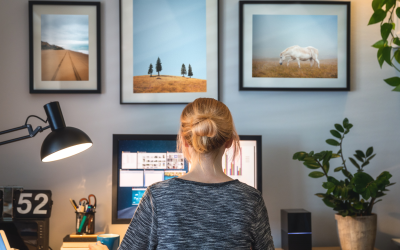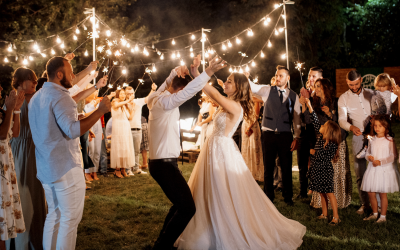
Relationship Anxiety 101: Why It Develops and How to Cope
This post may contain affiliate links, which means we may receive a commission, at no extra cost to you, if you make a purchase through a link. Please see our full disclosure https://www.rachelbutlercounseling.com/disclosure-privacy-policy-terms-of-use/ for further information.
You seem to have found the perfect partner. They treat you well, make you laugh, and match your love languages. You both have developed a sense of trust, regular communication, and healthy boundaries. So, why can’t you shake the feeling of insecurity regarding this relationship? Even though your partner doesn’t do anything wrong, you feel as though you’re constantly questioning the relationship, having doubts about trusting your partner, hyper-fixating on their words and actions, and anticipating the breakup. You start to wonder if maybe you’re just not fit for a relationship.
If you have experienced any of these worries or feelings, you may have relationship anxiety. Keep reading to learn more about relationship anxiety, what causes it, and how you can cope to maintain romantic relationships.
What is relationship anxiety?
Relationship anxiety can be classified by feelings of worry, doubt, and insecurity in a relationship, even if the relationship itself is going relatively well. Many people experience relationship anxiety at the start of a new relationship when they don’t know their partner very well yet. Because the relationship is new, you may wonder about your partner’s true intentions and feelings towards you. However, for some, relationship anxiety continues well into a long-term relationship. Although this isn’t necessarily abnormal, over time, it can lead to emotional distress and exhaustion.
Relationship anxiety affects 1 in 5 people [1], suggesting that it is fairly common. Although relationship anxiety is different for everyone, it often stems from trauma, low self-esteem, and/or an anxious attachment style. Under a trauma lens, it makes sense why someone would have relationship anxiety if they have felt abandoned in the past; going through a rough breakup or getting cheated on can be a very traumatizing experience. If someone has felt abandoned in their past relationship(s), they are more likely to generalize this experience to their future relationships. This creates relationship anxiety and a fear of abandonment in their current relationship, even if their partner has not shown any negative behaviors denoting a plan to abandon.
This relates to having an “anxious attachment style,” which is often created in childhood from the relationship between the child and their primary caregiver. If a child feels as though their caregiver’s emotions and ability to care for them was unpredictable, they will likely develop an anxious attachment style, which follows them in their future relationships. An anxious attachment style may lead to low self-esteem, a “need” for their partner’s approval, “clinginess”, and/or a general fear of their partner leaving them [2].
Relationship anxiety is not a great feeling. The good news, though, is that recognizing the signs of relationship anxiety and practicing coping skills can help you work through it, and maybe even overcome it.
Signs of Relationship Anxiety:
- Doubting your partner’s feelings for you: Behind every romantic relationship should be feelings of love, care, and affection for the other person involved. One of the scariest things for someone with relationship anxiety is their partner losing feelings for them, or even worse–the partner never having feelings at all. The fear of your partner falling out of love with you, or tricking you into thinking they were in love in the first place, creates strong feelings of doubt in those with relationship anxiety.
- Overanalyzing everything they say/do: The doubt that people with relationship anxiety experience often leads to them overanalyzing their partner’s words and actions. They may try to find hidden intentions behind what their partner says or does. Overthinking can become time-consuming and lead you to become suspicious and overly sensitive to your partner’s behaviors.
- Anticipating a Break-Up: People with relationship anxiety may think a break-up is just around the corner, even when their relationship is going smoothly. This typically stems from abandonment issues or low self-esteem. Even the smallest things, like your partner being a bit quiet or forgetting to text back one day, may set you off into a spiral of worrying there is something much bigger going on.
- Closing Yourself Off: Sometimes, when we believe that we are going to get emotionally hurt, we subconsciously “turn off” our emotions to protect ourselves. This may mean that you start to withhold affection from your partner, convince yourself you don’t care much about the relationship, or spend more time apart from your partner. These behaviors are more common for those who have a fearful-avoidant attachment style. This attachment style makes someone crave connection and love, but simultaneously avoids getting too close to anyone for fear of rejection and getting hurt.
- Self-Sabotaging the Relationship: In extreme cases, people with relationship anxiety may end the relationship altogether because the anxiety is too overwhelming, and/or as a way to gain control over the situation. Getting broken up is very damaging to our self-esteem and emotional well-being, so some individuals may initiate the breakup as a way to “get them before they get you.” Even if you don’t initiate a formal breakup, you may have other relationship-sabotaging tendencies that have the intention of “testing” the relationship. For example, if you find yourself starting arguments with your partner often so you can see if they care for you enough to fight for the relationship, you are likely experiencing relationship anxiety.
How to Cope with Relationship Anxiety
- Stay mindful. Mindfulness is the practice of keeping your awareness within the present moment instead of focusing on the past or future. Mindfulness has been researched to significantly decrease anxiety, as much of anxiety is spending time worrying about the future or regretting the past. To stay mindful in your relationship to avoid relationship anxiety, try redirecting your mind to the present moment with your partner instead of letting your mind wander. Make a conscious effort to redirect your thoughts to what is real and around you when you feel it start to wander to “what if” situations, like envisioning a break-up or your partner breaking your trust. At the end of the day, a thought is just a thought and doesn’t make a reality. Many enjoy mindfulness meditations when starting with mindfulness practices. Or, try out this guided mindfulness journal!
- Build your self-esteem. Low self-esteem is the root of many mental health issues. Although building higher self-esteem isn’t easy, it’s well worth the time and practice for the effect it will have on your mental health. To build your self-esteem, start by practicing positive self-talk and praising yourself for all your good qualities. Are you caring, smart, or creative? Give yourself some compliments, and recognize that you have so much to offer! Next, spend time alone with yourself. During this time, try and think about who you are apart from your romantic relationship. Many times, low self-esteem stems from feeling as though you are nobody without your partner. This can’t be further from the truth, but the only way to make yourself see this is to discover your passions and values away from your partner. To do this, try this self-love journal!
- Practice good communication. Experiencing relationship anxiety is hard enough, but keeping it all inside just makes things harder for yourself. Whether it is simply telling your partner about the anxiety you are experiencing or offering up some ways they can make you feel more at ease, communication is always a good idea. Keep in mind that communicating with your partner is different than blaming them for your anxiety. To have effective communication, you must express your feelings calmly and be willing to work through possible solutions with your partner.
- Don’t act impulsively. If you find that you are a “self-sabotager,” be sure to take a deep breath during times of anxiety and refrain from making impulsive decisions. Taking some time away from whatever situation is making you anxious may be effective in clearing your head and making a more rational decision later on.
- Talk to a professional. If you find that you are constantly talking to your partner about your persistent relationship anxiety and that it may be becoming a burden on them, it may be time to reach out for professional help. This will help you work through your emotions and create a plan for coping that is most helpful for both you and your partner. Check out the Sage Counseling Therapy & Wellness service page on Single and Dating Anxiety to learn more!
To discuss how therapy could help you during this season of your life, please contact me or schedule your free 15 minute consultation.
Want to read more? Here are a few of my related blog posts you may be interested in checking out!




0 Comments